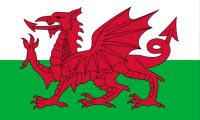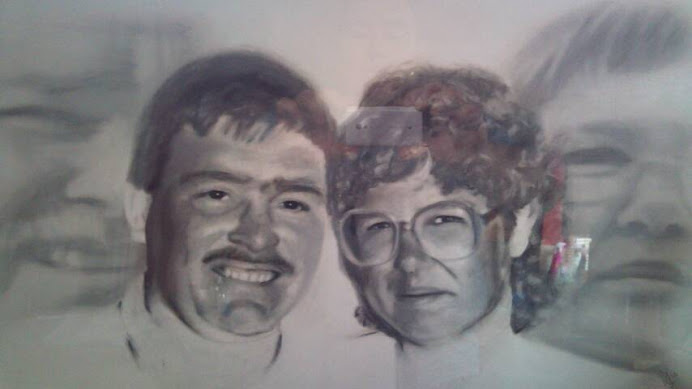6 September 2008
The Orangery
I am sat in one of my favourite haunts in Aberystwyth; The Orangery. I liken it more to a Gentleman's Club than a Coffee Shop / Cocktail Bar. Especially when the Couch, a small room on the left as you entered the premises used to be open. The leather seating in some parts of the building are extremely comfortable and they make a good latte. The bonus being that the staff are always friendly. They must have some Ghanaian blood inside them. Today I enjoyed yet another coffee and a Florentine Pizza made with a Free Range Egg in the Centre, lot's of Cheese and Spinach. Maybe not the healthiest of meals but one of the largest that I have eat in the last week. The rain is falling well on the West Coast of Wales, and I had set off from home with the intention of reading plenty of Norbert Elias from a new book that I have started since returning home. Unfortunately for Elias, the rain caused a distraction. My thoughts drifted back to the warmth of Africa and the warm of the friendships that I had begun while there. Writing some holiday advice and thinking of friends simply seemed like a more rewarding pastime on this weekend day off. Well, I say day off when I mean 'not in the office', as the nature of my business means that I am more often than not working 'on call'.
Travel advice for Ghana
Ghanaian's are lovely people and the following travel advice is based on my experiences in and around Accra, Ghana:
□ You need a travel VISA for Ghana. This will take at least 10 working days by post and 4 working days if you deal with it in person at the Commission
□ You need your Yellow Fever card for entry and you should have had other injections and tablets as prescribed by your doctor. These should be dealt with at least six weeks prior to travel. Get advice from your doctor sooner than later. It's a good idea to take some Imodium Tablets with you and some rehydration salt sachets; especially the European flavoured variety.
□ The packaged water sold on the streets is not safe for Europeans so use bottled water for drinking and for brushing your teeth
□ The currency is Cedis and smaller denomination Peswas. The Exchange Bureau in the UK might tell you it is $ or Euro. It's not, although some hotel prices are in $. Exchanging £'s and $ US in Ghana was not a problem. There was even a Bureau in Haatso
□ For safety carry small amounts of money. A fair tip is 50 Peswas and a fair gift to a beggar is 20 Peswas. Although please note that Ghanaian's generally frown upon begging
□ Most long taxi rides are between 4 and 7 Cedis. A long African bus ride around 1 Cedis 20 Peswas. A good meal for 2 with bottled water around 10 Cedis and a fine meal for three with soft drinks around 50 Cedis (£25). Bottled Fanta was sold for between 50 Peswas and 1 Cedis (25p - 50p)
□ Do not step outside of the airport and beyond the barrier unless your onward transport is waiting and you can see your friends or driver
□ The Ghanaian’s drive on the right hand side, so look both ways and concentrate
□ Food from Petrol Stations is safe but expensive. Eating cooked food from a street trader is proabably not a good idea unless you are with friends that know that the source is safe. With street traders and taxi’s unless the cost is written down then everything should be negotiated downwards
□ The Bus signs are for the orange coloured single deck National buses. The African bus is any multi seat vehicle like a mini bus of any colour and will stop just about anywhere. African Buses are chaotic but probably safer than a taxi. Pronounciation can be a problem, so it is a good idea to jot down your destination and return address on a bit of paper before you set off on your journey
□ Clothes and shoes are cheap, but if the seamstress/cobbler doesn't have your size it will take a week to make up something. So go shopping early into your holiday
□ On your return journey, your friends cannot enter the airport with you and you have to have your bags checked by Customs before you can check-in
□ August is probably the coolest month and March the hottest. August is the Ghanaian Rainy Season and the rain brings relief to the ever present humidity
For further travel advice check out your Consulate, Medical Centre and quality Websites. Enjoy your holiday!
□ You need a travel VISA for Ghana. This will take at least 10 working days by post and 4 working days if you deal with it in person at the Commission
□ You need your Yellow Fever card for entry and you should have had other injections and tablets as prescribed by your doctor. These should be dealt with at least six weeks prior to travel. Get advice from your doctor sooner than later. It's a good idea to take some Imodium Tablets with you and some rehydration salt sachets; especially the European flavoured variety.
□ The packaged water sold on the streets is not safe for Europeans so use bottled water for drinking and for brushing your teeth
□ The currency is Cedis and smaller denomination Peswas. The Exchange Bureau in the UK might tell you it is $ or Euro. It's not, although some hotel prices are in $. Exchanging £'s and $ US in Ghana was not a problem. There was even a Bureau in Haatso
□ For safety carry small amounts of money. A fair tip is 50 Peswas and a fair gift to a beggar is 20 Peswas. Although please note that Ghanaian's generally frown upon begging
□ Most long taxi rides are between 4 and 7 Cedis. A long African bus ride around 1 Cedis 20 Peswas. A good meal for 2 with bottled water around 10 Cedis and a fine meal for three with soft drinks around 50 Cedis (£25). Bottled Fanta was sold for between 50 Peswas and 1 Cedis (25p - 50p)
□ Do not step outside of the airport and beyond the barrier unless your onward transport is waiting and you can see your friends or driver
□ The Ghanaian’s drive on the right hand side, so look both ways and concentrate
□ Food from Petrol Stations is safe but expensive. Eating cooked food from a street trader is proabably not a good idea unless you are with friends that know that the source is safe. With street traders and taxi’s unless the cost is written down then everything should be negotiated downwards
□ The Bus signs are for the orange coloured single deck National buses. The African bus is any multi seat vehicle like a mini bus of any colour and will stop just about anywhere. African Buses are chaotic but probably safer than a taxi. Pronounciation can be a problem, so it is a good idea to jot down your destination and return address on a bit of paper before you set off on your journey
□ Clothes and shoes are cheap, but if the seamstress/cobbler doesn't have your size it will take a week to make up something. So go shopping early into your holiday
□ On your return journey, your friends cannot enter the airport with you and you have to have your bags checked by Customs before you can check-in
□ August is probably the coolest month and March the hottest. August is the Ghanaian Rainy Season and the rain brings relief to the ever present humidity
For further travel advice check out your Consulate, Medical Centre and quality Websites. Enjoy your holiday!
Subscribe to:
Comments (Atom)

Custom Search




